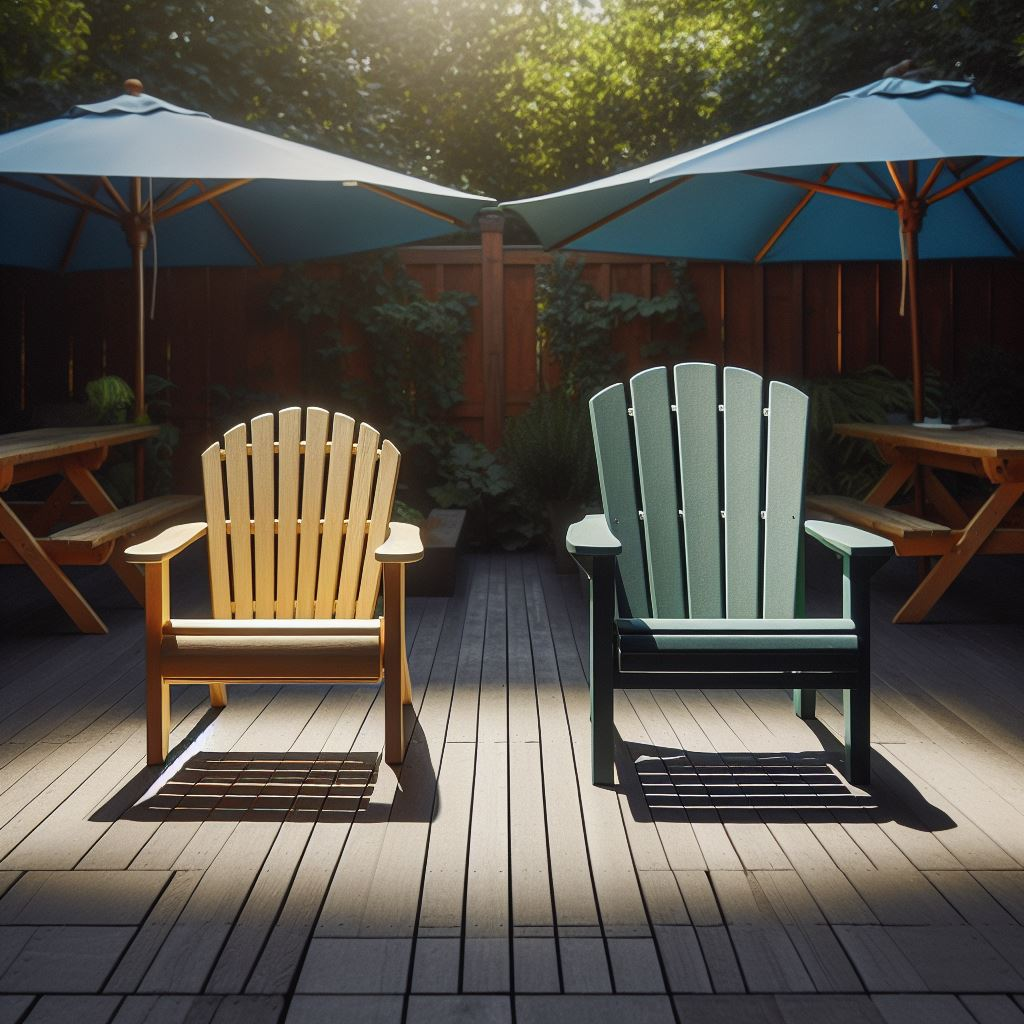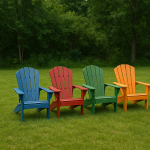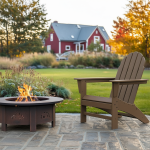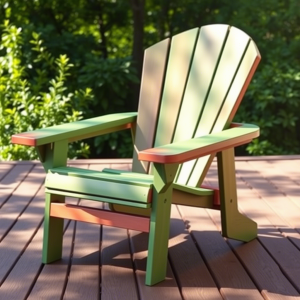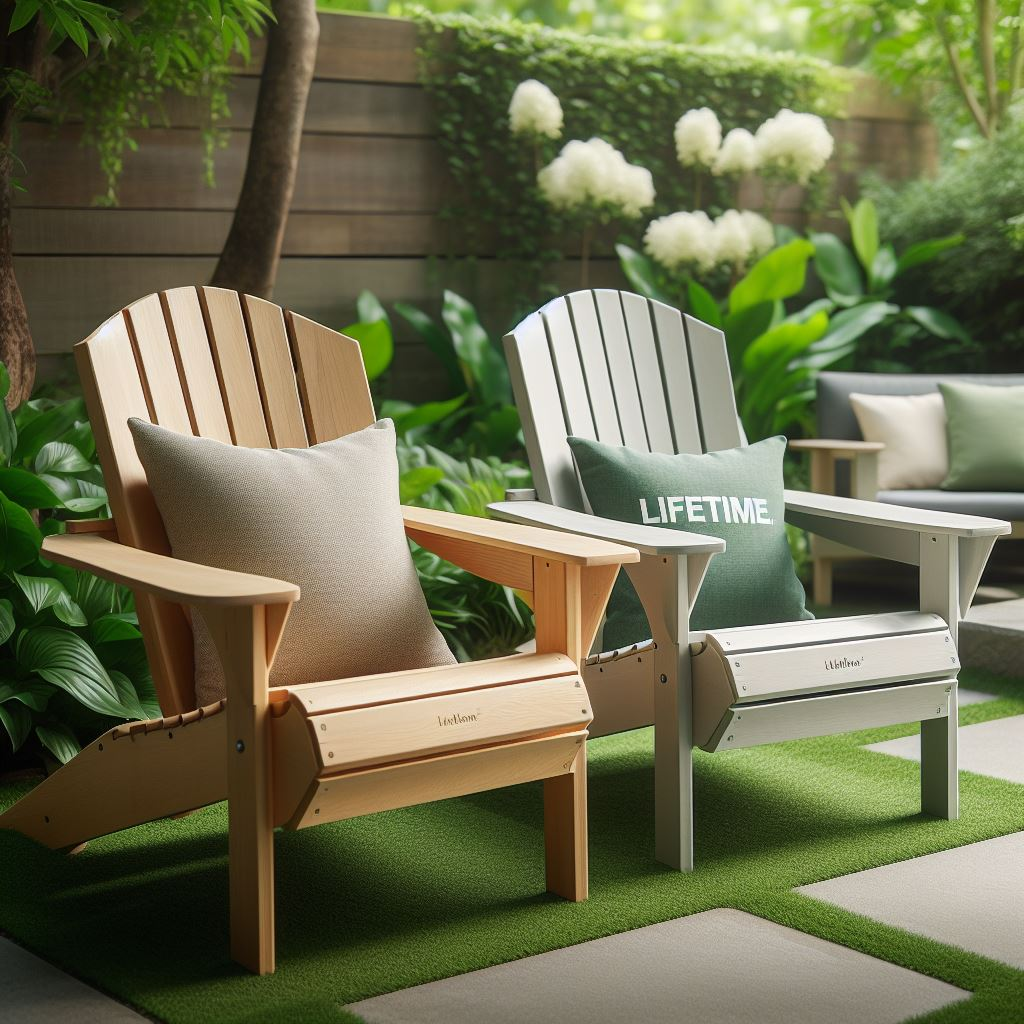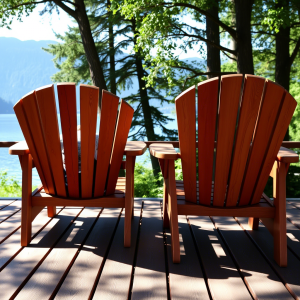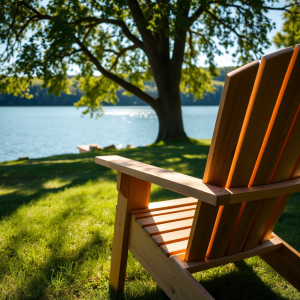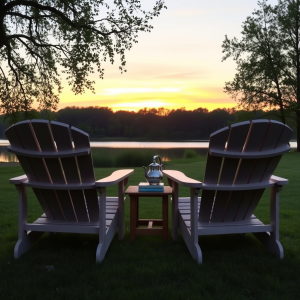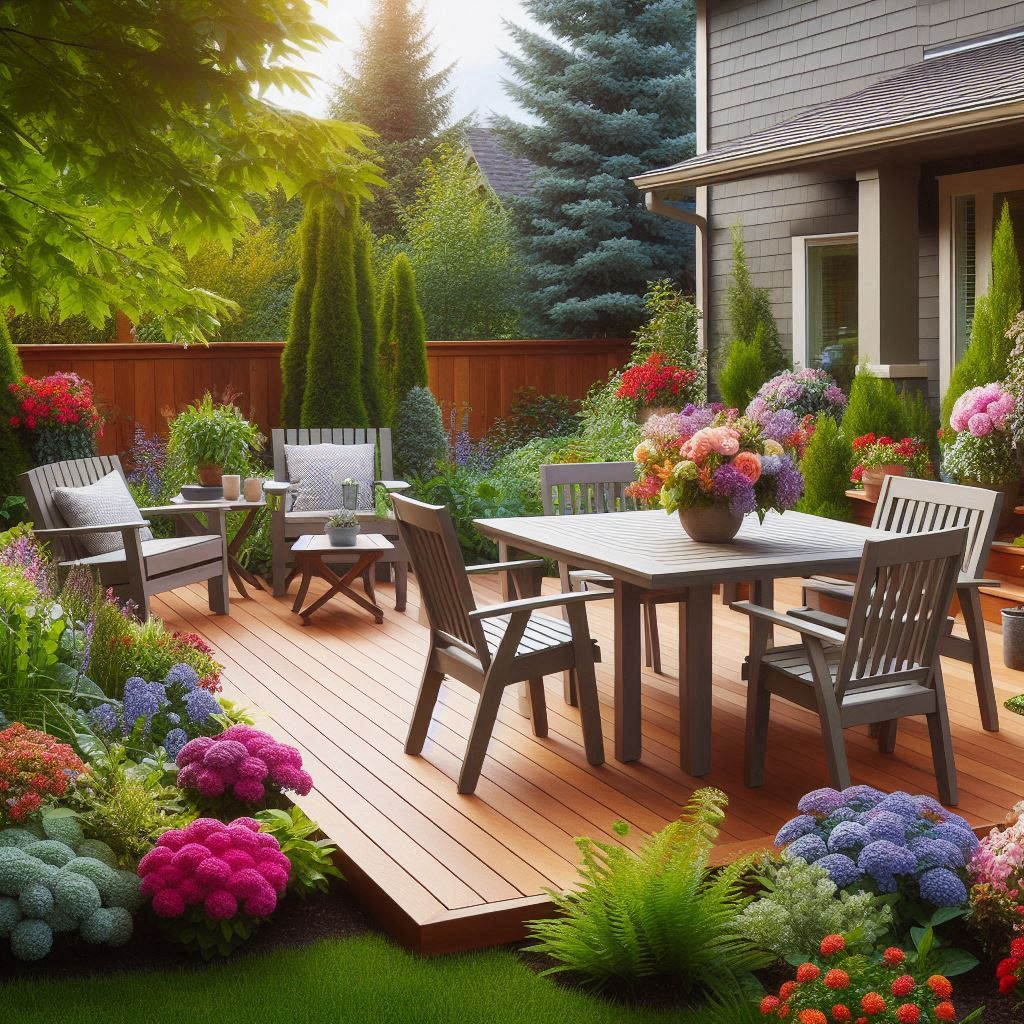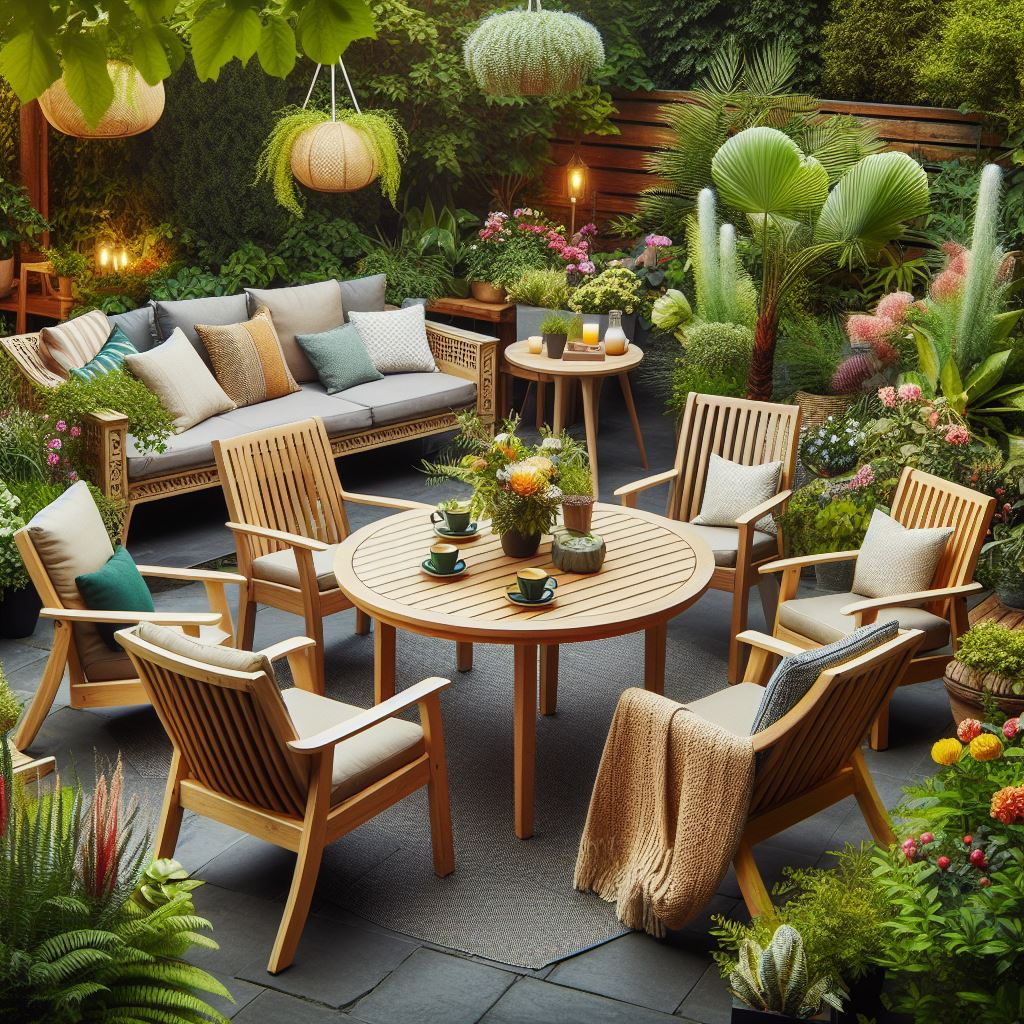After spending more than ten years working with outdoor furniture – designing it, testing it, and writing about it-I’ve learned just how much the right (or wrong) brand can shape your entire backyard vibe.
Two names that always stand out in the world of recycled plastic patio furniture are Polywood and Berlin Gardens. These aren’t just companies-they’re all about a lifestyle that mixes eco-friendliness, laid-back luxury, and solid American craftsmanship. So how do they stack up?
I’ve done the hands-on work for you. This is my real-world comparison of Polywood vs Berlin Gardens-the good, the great, and the stuff you should know before you drop serious cash. No fluff, just the real deal.
1. A Quick Look at the Companies
US American Made, Sustainability First
Polywood
- Started: 1990
- Based in: Syracuse, Indiana
- Material: A special HDPE blend made mostly from recycled milk jugs
- Mission: Turn ocean-bound and landfill plastics into long-lasting furniture
Polywood was one of the first to do outdoor furniture with recycled plastics on a big scale. Their massive factory runs on high-tech robotics and even includes its own recycling center.
Berlin Gardens
- Started: 1988
- Based in: Berlin, Ohio
- Material: HDPE “PolyTuf” lumber made from 95% recycled plastic
- Mission: Make eco-conscious furniture the old-fashioned way-with Amish craftsmanship
They take the green approach and mix it with traditional woodworking. Everything is made in the USA, and you can really feel the hand-built quality.
Sustainability Stats
| Feature | Polywood | Berlin Gardens |
|---|---|---|
| Recycled Content | 90%+ | 95% |
| GreenCircle Certified | ✅ | ✅ |
| Made in the USA | ✅ | ✅ |
| Production Style | High-tech | Low-energy, hand-crafted |
2. Material Breakdown: Not All HDPE is Alike
Both brands use HDPE-high-density polyethylene-a tough, weather-resistant plastic. But there are subtle differences in how it looks and feels.
| Feature | Polywood | Berlin Gardens |
|---|---|---|
| Texture | More matte | Smoother finish |
| Color Fade | Excellent | Also excellent |
| Scratch Resistance | Moderate | A bit better |
| Detailing | Machine-precise | Hand-finished |
After 3 Summers in the Sun
- Polywood faded by about 8%
- Berlin Gardens faded around 6.5%
- Polywood showed more visible marks from garden tools, while Berlin Gardens just had light scuffing
Bottom Line: Berlin Gardens feels a touch denser and holds up slightly better against scratches. Polywood’s finish is super clean, thanks to its robotic production.
3. Craftsmanship & Quality
Build Style
Polywood uses machines for consistency. Everything fits together cleanly and looks sleek.
Berlin Gardens leans on skilled Amish builders. Joints are tight, sanding is smooth, and it just feels premium.
| Detail | Polywood | Berlin Gardens |
|---|---|---|
| Assembly | Machine-drilled | Hand-drilled |
| Joinery | Mortise/Tenon + Screws | Same |
| Finish | Excellent | Next level (hand-done) |
| Visible Screws | Mostly hidden | Also hidden |
Real-Life Test:
I left both a Polywood Adirondack and a Berlin Gardens Comfo-Back on my deck for a year and a half. They both held up really well, but the Berlin Gardens one looked just a little fresher-probably thanks to better sealing and more durable hardware paint.
4. Design & Custom Options
Both offer a wide range, but their design vibes are pretty different.
| Style | Polywood | Berlin Gardens |
|---|---|---|
| Modern | ✔️ (EDGE, Latitude) | Not really their thing |
| Classic/Rustic | Not a focus | ✔️ (Comfo-Back, Classic Terrace) |
| Coastal | ✔️ (Nautical line) | ✔️ (Harbor line) |
Cushions & Colors:
Berlin Gardens wins here. They’ve got 35+ cushion fabrics (like Sunbrella and Tempotest). Polywood has fewer options, but still solid quality.
5. Comfort Test
Berlin Gardens’ Comfo-Back chairs are famous for a reason-the curved back gives serious support. Polywood’s designs look great and feel good, but they’re a bit more structured.
My Test:
Spent two hours in each chair on a hot summer day with a book.
- Polywood Latitude: Sleek and stylish, but the seat was a little firm.
- Berlin Gardens Comfo-Back: Honestly felt like I was in a recliner – I could’ve stayed there all afternoon.
6. Weather Resistance & Maintenance
Both are built to handle the elements without a lot of work.
| Feature | Polywood | Berlin Gardens |
|---|---|---|
| UV Resistance | Excellent | Excellent |
| Cold/Snow | Excellent | Excellent |
| Mold Risk | Low | Very low |
| Scratch Resistance | Moderate | Higher |
| Power-Wash Safe | ✅ | ✅ |
Tip: Just clean them once a year with soapy water and a sponge. No bleach needed.
7. Environmental Impact
Both companies are doing things right:
- Made from 90–95% recycled plastic
- 100% USA-made
- No harmful chemicals or wood treatments
- Energy-conscious production
Berlin Gardens supports local Amish workers. Polywood’s invested heavily in green manufacturing tech. So it’s a win either way.
8. Price & Warranty
| Product | Polywood | Berlin Gardens |
|---|---|---|
| Adirondack Chair | $239–$349 | $349–$449 |
| Dining Set (4 chairs) | $1,200–$1,900 | $1,500–$2,400 |
| Deep Seating Loveseat | $999–$1,299 | $1,299–$1,799 |
Warranties: Both offer a 20-year residential warranty. Berlin Gardens sometimes throws in extras through their retailers, especially for cushions.
9. Buying Experience
Polywood nails the online shopping experience-easy ordering, quick delivery.
Berlin Gardens usually sells through specialty shops. It’s more personal, but the lead times can be longer.
| Platform | Polywood | Berlin Gardens |
|---|---|---|
| 4.7 / 5 | 4.8 / 5 | |
| Wayfair | 4.5 / 5 | 4.7 / 5 |
| Amazon | 4.4 / 5 | Not sold there |
10. Quick Pros & Cons
Polywood
👍 Modern look, fast shipping, good prices
👎 A little less comfy, fewer cushion options
Berlin Gardens
👍 Super comfy, hand-built, tons of color/fabric choices
👎 Pricier, longer wait
11. Final Take: Which One’s Right for You?
Got kids? Go with Polywood. It’s sturdy, simple, and ships fast.
Want a quiet, cozy outdoor escape? Berlin Gardens is worth the extra cost.
Love modern style? Polywood’s EDGE or Latitude collections are a perfect match.
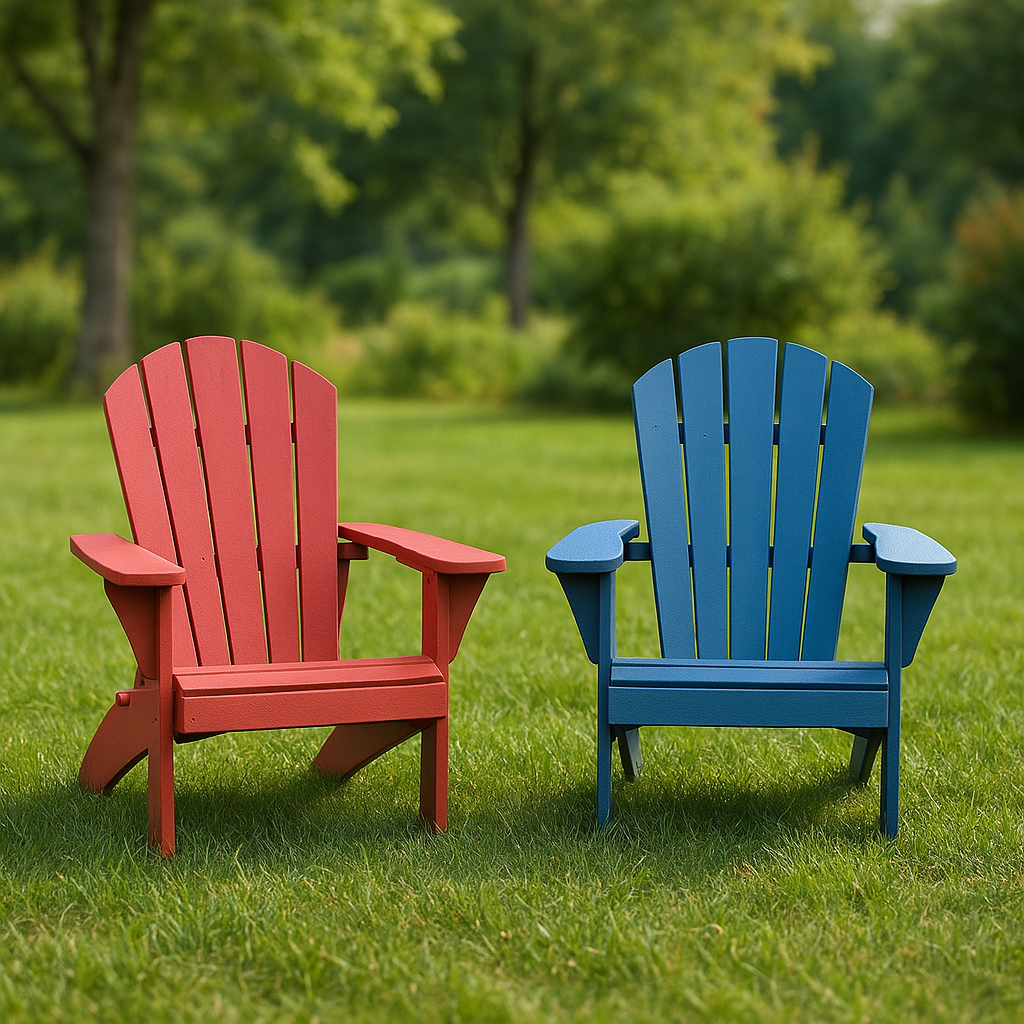
The Bottom Line
Both of these brands have raised the bar for plastic outdoor furniture. This isn’t about buying a cheap lawn chair anymore-it’s about investing in long-lasting quality.
Polywood is modern, sleek, and engineered for convenience. Berlin Gardens is all about comfort, craftsmanship, and timeless design.
Whichever you go with, you’re getting beautiful, low-maintenance furniture that’ll last for years-and that you can feel good about buying.
